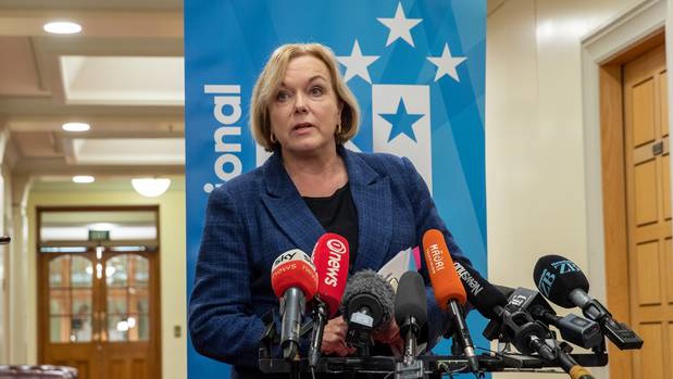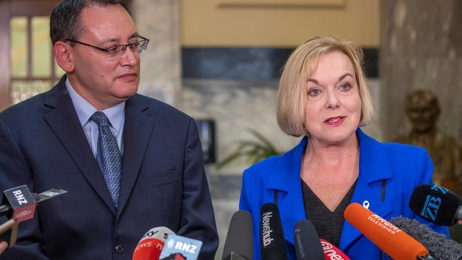
National would re-introduce 90-day trials for new employees in the latest small-business policy package released by leader Judith Collins.
"The only sustainable way to create new jobs is to reduce barriers, costs and uncertainty for the private sector and in particular small business," Collins said in Miramar in Wellington.
"National will empower small businesses to grow, thrive and succeed," she said.
National would make other changes to Employment Relations Act, including getting rid of the provision that allows lawyers to take up cases on a "no-win no-fee" basis.
National believes it allows lawyers to shop around for speculative employment cases and creates uncertainty in the law.
National would also initiate a review of WorkSafe, the government's workplace regulator.
/cloudfront-ap-southeast-2.images.arcpublishing.com/nzme/MCN2XLRNBBFPZF5IKUQXZKHUPQ.jpg)
National small business spokesman Andrew Bayly. Photo / Mark Mitchell
Labour wanted to get rid of 90-day trials altogether but, in a compromise with New Zealand First, the trials are now limited to employers with fewer than 20 employees.
It means employees in small and medium enterprises cannot take a personal grievance or other legal action against an employer for unfair dismissal within the first 90 calendar days of employment.
Labour's flagship industrial relations policy, Fair Pay Agreements, which allows a selective return to national awards, have been scuppered by New Zealand First and have not progressed into legislation.
National has previously announced a policy known as Jobstart which gives employers a $10,000 grant for every new person it hires above its FTE workforce from November to March, up to a maximum of 10 employees, or nationally 50,000 new hires.
Small business spokesman Andrew Bayly said better employment and incentives for job creation would help businesses to take on new staff and get them off unemployment benefits.
"Kiwi businesses are struggling under the weight of poor regulation and mounting costs," he said.
National would simplify industrial relations legislation to reduce red tape and encourage businesses to create new jobs by repealing the Government's changes to the Employment Relations Act.
"We will initiate a review of WorkSafe, five years since its inception, to ensure it is focused on delivering a high-performance culture, with an emphasis on a collaborative and reasonable approach to health and safety improvement," Bayly said.
He said National would also require all government departments and agencies to pay their contractors within seven days.
Finance spokesman Paul Goldsmith repeated National's pledge that it would not increase existing taxes or introduce new taxes.
"Businesses need confidence to invest and create more jobs. The last thing New Zealand needs right now is higher taxes," he said.
He said National would:
- Raise the threshold at which a business needed to be gst registered from $60,000 to $75,000.
- Increase the provisional tax threshold from $5000 to $25,000.
- Change the timing of the second provisional payment for businesses with a March 31 year to February 28 rather than January 15.
- Lift the threshold to write off new capital investment from $5000 at present to $150,000 per asset.
- Allow businesses to write off an asset once its depreciated value fell below $3000.
- Ensure that use of money rates charged by IRD – currently at 7 per cent – more properly reflected interest rates.
Take your Radio, Podcasts and Music with you









